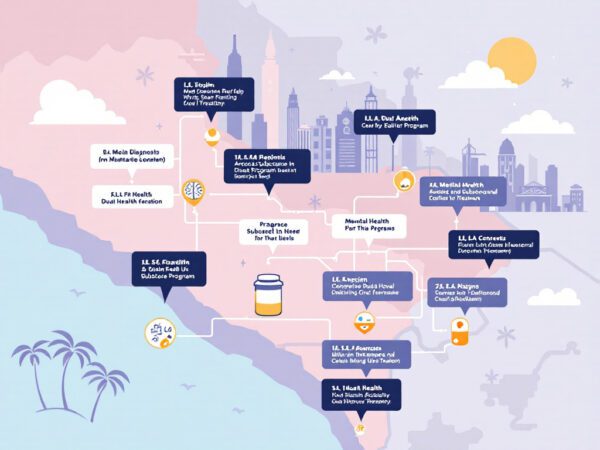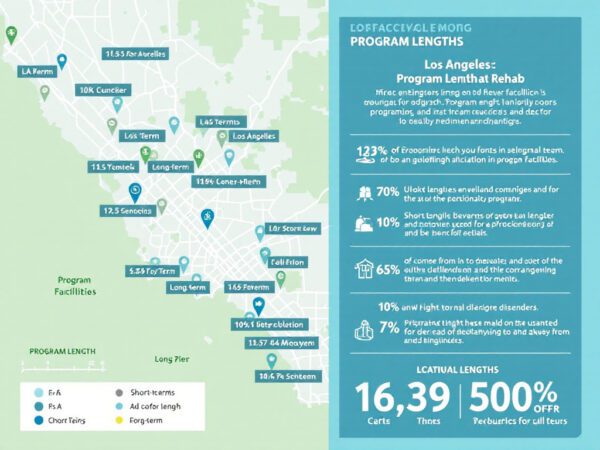When you’re choosing care based on support system in LA, you may feel uncertain about which program level will suit your needs and circumstances. Each option, from outpatient services to residential treatment, varies in therapy intensity, scheduling flexibility, and support requirements. As a result, matching your recovery plan to your personal network of family, friends, and professional contacts is crucial for lasting success.
Overall, level of care decisions hinge on factors such as the severity of your addiction, the availability of supportive relationships, and your daily obligations. In this guide, you’ll find a clear breakdown of common program types, advice on weighing your support resources, and practical tips for transitioning between levels as your needs evolve. To get started with foundational guidance, see how to know your level of care in addiction.
By understanding program features, comparing intensity levels, and exploring adaptive pathways, you can take confident steps toward a recovery path tailored to Los Angeles. Whether you’re balancing work commitments, family responsibilities, or limited peer support, this guide will help you navigate options and plan a care strategy that aligns with your support network.
Understand level of care
Below is a quick comparison of common addiction treatment levels in Los Angeles.
| Program level | Typical hours per week | Ideal severity | Key benefit |
|---|---|---|---|
| Outpatient care | 3–9 | Mild to early moderate | Maximum flexibility and community support |
| Intensive outpatient program | 9–19 | Moderate | Structured therapy with evening or weekend schedules |
| Partial hospitalization (PHP) | 20–30 | Moderate to severe | Day treatment with daily clinical oversight |
| Residential treatment | 24-hour | Severe | Immersive environment with round-the-clock support |
Outpatient care
Outpatient care offers individual and group counseling while you continue living at home. It’s best if you have a stable home environment and reliable transportation. You’ll meet with therapists several times per week but maintain your usual routines. For a deeper look at the advantages, review our guide on outpatient care benefits in los angeles.
Intensive outpatient programs
An intensive outpatient program (IOP) requires more frequent sessions—often three evenings per week—without the need for overnight stays. This level works well if you need a structured therapy schedule but still manage work or school. To compare IOP with day-treatment alternatives, see php vs iop in los angeles.
Partial hospitalization
In PHP you spend most of your day at a clinic receiving individual therapy, group sessions, and medical monitoring. This option suits those with moderate to severe addiction who need daily clinical oversight yet can return home each evening. PHP often bridges the gap between IOP and full residential care.
Residential treatment
Residential treatment provides a live-in, 24-hour care setting with intensive counseling, peer support groups, and medical supervision. If withdrawal risks, co-occurring disorders, or environmental triggers undermine your progress at home, residential care may be your best choice. Learn more about when to commit to an immersive program in our article on when to choose residential treatment in la or compare it directly with outpatient services in residential rehab near los angeles vs outpatient.
Assess support resources
Your existing support network can determine how much structure and supervision you require. Consider these elements as you evaluate care levels.
Family and home environment
- Availability: Can loved ones provide check-ins, transportation, or supervision?
- Stability: Does your home atmosphere encourage sobriety or pose triggers?
- Communication: Are family members willing to participate in therapy sessions?
Peer and community support
- Meetings: Are there local 12-step or peer-led groups near you?
- Sponsorship: Do you have a sponsor or mentor available for crisis support?
- Online networks: Can you access virtual support when in-person options are limited?
Professional and clinical support
- Therapist access: Will you have easy scheduling for individual counseling?
- Medical oversight: Do you need regular checkups, medication management, or nursing services?
- Dual-diagnosis resources: If you face co-occurring mental health challenges, check how programs handle integrated care under dual diagnosis across program levels in la.
Work, school, and daily obligations
- Flexibility: Can your job or classes accommodate therapy appointments?
- Commute: How far are you willing to travel each week for treatment?
- Timeframe: Do you need evening or weekend options to fit your schedule?
By matching program intensity with the strength and availability of your support system, you’ll reduce stress and improve your chances of staying engaged in treatment.
Match needs and severity
Aligning program intensity with your level of addiction and any co-occurring disorders ensures you receive appropriate care.
Mild to moderate addiction
If your substance use is early-stage or moderate, you may thrive in outpatient care or an IOP. These programs teach coping skills and relapse prevention techniques without requiring full immersion. For a detailed comparison of program intensity, see matching severity to program intensity. If you fall in the midrange, explore what program fits moderate addiction in la.
Severe addiction
When substance use has escalated to daily dependence, health risks, or job loss, partial hospitalization or residential treatment offers the structure you need. Daily monitoring and peer accountability reduce the risk of relapse during the critical first weeks of recovery.
Co-occurring disorders
If you face anxiety, depression, or other mental health conditions alongside addiction, integrated treatment becomes essential. Verify that programs offer dual-diagnosis care, psychiatric evaluation, and medication management. More on navigating mental health across levels appears in dual diagnosis across program levels in la.
Overall, choosing the right level means honestly assessing your addiction severity and ensuring clinical support matches your needs.
Evaluate program flexibility
Treatment plans should adapt to your lifestyle and commitments. Compare these factors as you narrow your choices.
Scheduling and convenience
- Part-time vs full-time: Can you attend sessions without jeopardizing work or family duties?
- Evening and weekend options: Do you need non-traditional hours?
- Commute and parking: Is the facility accessible by public transit or close to home?
Therapy intensity
- Session frequency: How many hours per week can you commit?
- Group versus individual: Do you benefit more from peer discussions or one-on-one focus?
- Specialty therapies: Are holistic options like art therapy or meditation important? For an overview of therapy intensity by level, visit intensity of therapy across levels in los angeles.
Service availability
- Medical monitoring: Do you require on-site nursing or detox supervision?
- Case management: Will a dedicated coordinator help navigate insurance and appointments?
- Aftercare and alumni: Are support groups or continued counseling offered post-program?
Balancing flexibility with therapeutic rigor lets you stay engaged in recovery without overwhelming your existing responsibilities.
Plan care transitions
Your needs can shift during recovery. Having a transition plan ensures continuity and prevents relapse.
Stepping up in care
If you find outpatient or IOP insufficient, you may need a higher level of supervision. Signs include relapse risk, unmanaged withdrawal symptoms, or worsening mental health. Learn when to increase intensity in when outpatient is insufficient in la and how Totality guides you through escalation at how totality supports stepping up in care.
Stepping down in care
After completing residential or PHP, you might move to IOP or outpatient care to reinforce skills while reintegrating at home. Transition smoothly with resources on step-down care from residential in los angeles and transitioning from php to outpatient in la.
Continuity of support
Coordinated handoffs between levels reduce gaps in care. Ensure your provider offers clear discharge plans, ongoing case management, and peer-led groups. Review best practices at transitions between program levels los angeles.
A structured transition strategy helps you maintain momentum and reduces the chance of setbacks.
Factor program logistics
Practical considerations can influence which programs fit your budget and lifestyle.
Location and amenities
- Proximity to work or home
- Facility atmosphere, privacy, and comfort
- On-site amenities such as fitness areas or meditation rooms
Length of stay
- Short-term intensive (days to weeks)
- Medium-term (30 to 60 days)
- Extended residential (90 days or more)
Compare typical durations in our chart on program length comparisons in la rehab.
Cost considerations
- Private insurance, Medicaid, or self-pay options
- Sliding-scale fees and financing plans
- Out-of-pocket estimates by level
Review cost breakdowns for each care tier at cost difference by care level in los angeles.
Factoring logistics early prevents surprises and ensures you can focus on recovery.
Explore Totality’s approach
Totality LA offers adaptive programs designed around your unique circumstances and support network.
Personalized pathways
Every client receives an individualized treatment plan that adjusts intensity based on progress and support availability. Learn more at personalized program pathways at totality la.
Integrated support services
From dual-diagnosis therapy to family counseling and case management, Totality’s services cover the full spectrum of recovery needs. You benefit from coordinated care across program levels.
Ongoing care continuum
Whether you require a brief boost in clinical oversight or long-term peer support, Totality ensures seamless transitions and alumni resources that reinforce progress.
By combining evidence-based therapies with flexible scheduling, Totality LA empowers you to stay engaged in recovery without sacrificing your daily life.
Take next steps
You’ve reviewed program types, matched care levels to your needs, and weighed logistical factors. Now it’s time to act.
Assess your needs
Reflect on your addiction severity, home environment, and daily responsibilities. For a structured planning exercise, see planning your recovery path in los angeles.
Reach out to Totality LA
Contact our admissions team to discuss your situation, verify insurance coverage, and schedule an intake assessment. We’ll guide you toward the option that aligns with your support system.
Prepare for intake
Gather medical records, insurance details, and a list of questions. Arriving organized helps you start treatment with confidence.
By taking these steps, you’ll move forward with a clear, knowledgeable plan that leverages your support network and Totality’s adaptive care model.















